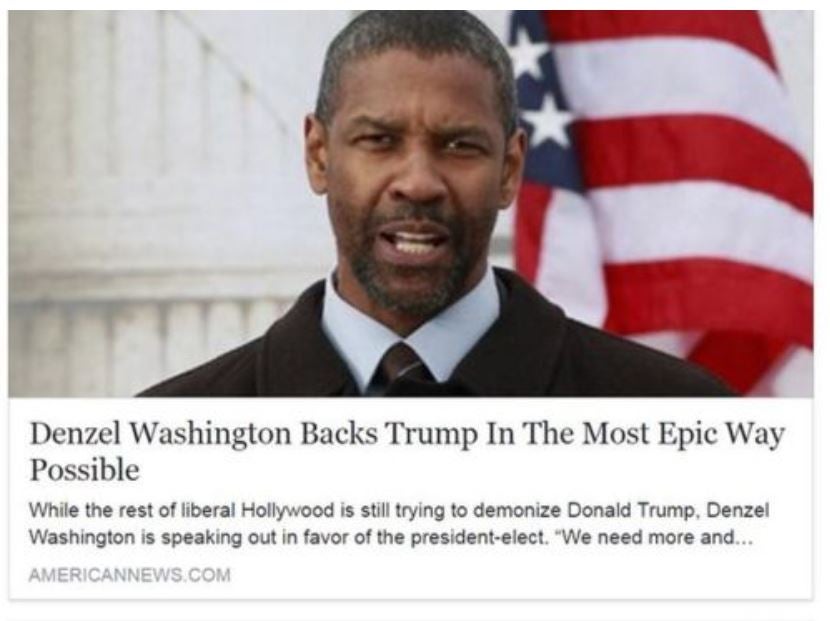
The Labour Party is “open-minded” about the findings of its inquiry into fake news and is calling on members of the public and news media platforms to submit evidence, Press Gazette has been told.
The inquiry, set up by Shadow Secretary of State for Culture, Media and Sport Tom Watson MP, has been established following concerns over the growing prevalence of fake news.
It will be led by Michael Dugher MP with evidence hearings (which could be held in public) likely to take place early next year ahead of a report on the inquiry’s findings due out in Spring.
To share evidence with the inquiry, fill out the form on the website or email fakenewsinquiry@tom-watson.com with details.
Fake news relates to stories that are portrayed as real but are actually entirely fabricated and which have either been created as political propaganda or as a cynical source of online revenue (or often both).
Facebook and Google revealed plans to help tackle the issue last month.
According to its website, the inquiry will look at “the changing way news is consumed and shared online, and at the practical, political and ethical issues raised by fake news.
“It will ask if social media platforms could, or should, take steps to ensure users are exposed to a greater diversity of views, and whether they have a responsibility to prevent fabricated content being widely shared.
“It will explore whether they can make editorial decisions without being accused of political bias, and what role online communities can play in fact-checking news reports.”
Questions and topics outlined for investigation comprise:
- What is “fake news”?
- The role of social media
- Pressures on journalism
- Ethics, values and critical thinking
- Political implications
A spokesperson for Watson said of the inquiry: “Some of the questions are quite philosophical. We are not going to have final answers to them, but it’s quite useful to clarify some of the issues that are there.
“It isn’t going to be a let’s shut down Facebook kind of recommendation, but how is the changing media environment creating conditions in which its more likely for fake news to be shared out; the impact of that on general democracy, discourse and what can we do about it.
“There’s a piece in the role of consumers and how we can help them to think more critically about the news they consume.”
They added: “We are generally open-minded about what this [inquiry] might come up with.
“We are very conscious that fake news is a serious problem that policy makers need to start paying attention to in terms of the way in which people consume news and the dominance of Facebook and online platforms as people gateway into getting news…
“There is the problem of a filter bubble – only seeing things your friends share and like – and you don’t see a more balanced and reliable set of sources and clearly there are changes in our media consumption that are exacerbating this.
“We are interested in the pressures on journalists over the past few years to create more shareable content.
“We have seen more and more online media new stories which are written in a way to maximise shareability which is a different thing now from the pressures that journalists had 15 to 30 years ago and that affects the way stories get written.”
Writing in the Independent last month, Watson said: “The [inquiry] questions are complicated – but they need to be asked.
“I don’t want to sound too gloomy about the business of news or the future of political discourse in the UK and elsewhere.
“Social media platforms could help create a code of ethics for sharing news. It could be that all of us develop a habit for wading through lies and misinformation so that fact-checking becomes second nature.
“Perhaps it will even encourage us to pay for information produced by reputable news sites? We could even see the emergence of online communities that check news in the same way facts are checked, challenged and changed collectively on Wikipedia.
“I’ve never been afraid to take on the mainstream media when it abuses its power or acts illegally or unethically – by hacking phones, bribing public officials or going through people’s bins.
“And complaints about the ‘biased MSM’ [‘mainstream media’] are sometimes justified. But the solution does not lie in the creation of a form of pseudo-journalism that is even more biased, less rigorous and often based on downright lies.
“We all want a strong press in this country, even if I happen to disagree with many newspapers a lot of the time.
“The practical, political and ethical questions raised by fake news are complicated. But for the good of our democracy, we all need to start engaging with them.”
Email pged@pressgazette.co.uk to point out mistakes, provide story tips or send in a letter for publication on our "Letters Page" blog
